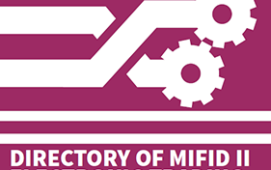
DTCC has closed its Global Markets Entity Identifier (GMEI) utility and will no longer issue Legal Entity Identifiers (LEIs) as a Local Operating Unit (LOU) in the Global LEI System. In a notice to GMEI clients, DTCC said the utility, operated by DTCC subsidiary and accredited LOU Business Entity Data B.V., terminated all its LEI services on 27 July 2023 at 5pm EDT. Following a phased approach dictated by the Global LEI Foundation’s (GLEIF) offboarding process and LEI management transfer service, the GMEI will no longer be an LOU from 22 August 2023.
Expanding on its rationale for closing GMEI, DTCC states in an FAQ document: “After a thorough assessment of the GMEI business in the context of DTCC’s overall business strategy, it was concluded that the GMEI lacked alignment with DTCC’s strategic focus.”
The GMEI was established in January 2014 as a rebrand of the CFTC’s Interim Compliant Identifiers (CICIs) utility, a DTCC and Swift operated repository for so-called pre-LEIs that managed registrations of CICIs following its launch in August 2012.
The rebrand named the CICI utility as the GMEI, which would issue LEIs and rename CICIs as LEIs. It was built, in great part, using the skills, IP and resources of Avox, a provider of high-quality reference data based in the UK and acquired by DTCC in 2010, before the development of the CICI utility and later the GMEI. Avox has since been acquired by Refinitiv, an LSEG business, although the GMEI remains as a standalone DTCC business.
The GMEI is not the first LOU to pull out of the Global LEI System, with smaller organisations failing to build business around the identifier, but it does have a high profile in capital markets, leading to questions about whether its demise will damage the global system.In a statement that does not specifically mention the GMEI, GLEIF says: “The Global LEI System remains more robust and more expansive than ever before, reflected in the sustained increase in the number and variety of enabling stakeholders participating in the Global LEI System, including LOUs, Validation Agents, LEI and vLEI issuers, Registration Agents, and LEI mapping partners. The US is the largest market for LEI adoption globally. There are 11 active LOUs in the US.”
Industry opinion suggests the closure of the GMEI will not change anything in the larger scheme of the Global LEI System, although the system does need to be fortified by more regulatory mandates requiring use and renewal of the identifier.
While the LEI is proven as a unique entity identifier, it is in the renewal process that cracks begin to show. Regulatory mandates, more would be better, require the issuance of LEIs to meet certain obligations, but regulators have stopped short of mandating renewals, adding a burden and addition to the cost base rather than a business opportunity for some LOUs, and perhaps one of the reasons behind the closure of the GMEI utility.
According to GLEIF statistics, the DTCC utility tops the list of Active LEIs by Issuer with 398,074 or 17.1% of the global total. Its LEI renewal rate is not so impressive with the LOU in the bottom three operating units and achieving a renewal rate by issuer of 37.3%. Putting this in context, a handful of LOUs, albeit not the largest in issuance, are recording 100% renewal, with large LOUs such as Bloomberg achieving 57.1% and the London Stock Exchange 41.2%, only a little better than the GMEI.
As part of the winding down process of the GMEI, clients cannot select a new LOU, although they will be able to once initially transferred from the GMEI, and their LEIs will instead, because of the volume of LEIs maintained by the utility, be part of a GLEIF bulk process designed to minimise client impact and avoid potential regulatory reporting challenges. The process will transfer LEIs issued by the GMEI to LOUs on a jurisdictional basis by 22 August 2023.
Bloomberg and the LSEG are expected to be the biggest beneficiaries of the process, ahead of other transferees including EQS in Canada, NordLEI covering Luxembourg, Sweden, Denmark, Norway, Finland, Faroe Islands and Iceland, GS1 in Hong Kong and Singapore, and WM Datenservice in Australia.
For GMEI clients, the ‘transfer period’ is a short waiting game with LEI registrations, renewals and challenges no longer accepted by GMEI, and their allocation to new LOUs due to be completed within the next week.
Subscribe to our newsletter





